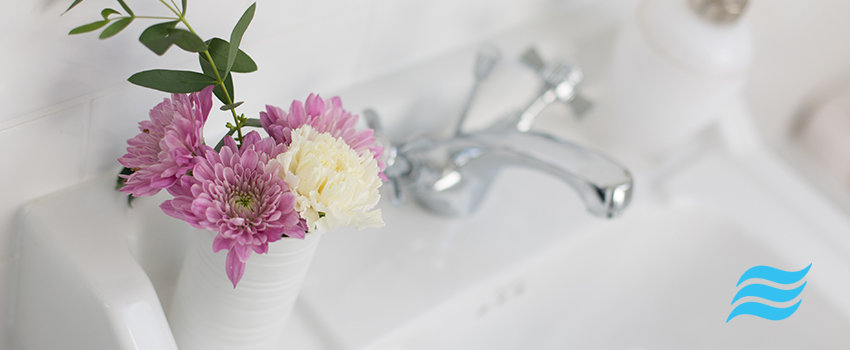
Spring Tips to Keep Your Plumbing Perfect
Spring is here, and it's time to get cleaning – and what better place to start than with your plumbing!
Here are some of our top tips to get your plumbing perfect for the springtime.
Bathroom Plumbing Tips:
- Check your faucets for leaks, drips, or any sign of damage. Repair what you can replace what you can't – this will save water (and money) and prevent a small leak from evolving into a bigger job.
- Use drain strainers in your showers and sinks to catch any hair or debris that might cause your drain to clog.
- Hey, we all know bathrooms come under extra pressure during the holidays! Examine the bowl and tank of your toilet for any cracks that might become a leak. If you've already got a leaky toilet, try adding six drops of food coloring to your toilet tank, if the color shows up in the toilet in the next 30 minutes or so you have a leak somewhere along the line.
- Check that your toilets are flushing correctly. If the handle needs to be jiggled or forced for the toilet to be flushed correctly, then your tank may be worn down. Don't worry, though. It's not expensive to replace and will save you money on your water bill!
- If mineral deposits are forming on your shower head, it's important to clean it as soon as possible. You can do this by unscrewing the showerhead and placing it to soak in a tub of vinegar overnight. If it doesn't unscrew, you can also fill a plastic bag with vinegar and put it over your shower head. Secure the showerhead with a rubber band and leave it to soak overnight. The following day, remove it from its vinegar bath and scrub the showerhead lightly with a brush to get rid of the mineral deposits.
Get Your Appliances Ready For Spring:
- Set the temperature of your water heater to 120°F – this will help save energy costs and help prevent any potential accidents that may happen when using hot taps.
- A buildup of sediment in the water tank can cause corrosion, which makes your heater less efficient and shortens its lifespan. It's important to clean out this sediment by draining several gallons from your water heater tank. Check your tank manufacturer's website for instructions on how to do this for your specific make and model.
- If your water heater is over 15 years old, you should consider replacing it. Newer water heaters are a lot more efficient to run and can save you serious money in the long run.
- When it comes to your washing machine, ice maker, or dishwasher, it's essential to look for bulges or leaks in the supply hoses. If there are any signs of damage, it's time to replace them. Wherever you can, try to use stainless steel hoses as they are more durable and less likely to burst or leak.
Prevent Flooding & Unpleasant Surprises:
- Everyone has areas of their home that aren't used very often – like guest bathrooms. Keep those rooms stink-free by pouring a gallon of water down into the drains. Not only does this push away debris that could potentially cause a blockage, but it will also fill the grease trap and prevent any unpleasant odors from entering your home.
- If your floor drains are slow to drain, make sure they're snaked regularly – this will also allow them to carry water away quickly in case of a flood.
- Take a look for any leaks in exposed pipes under the basement or under sinks. If you notice any, try to patch them up to prevent a bigger job in the future.
- You can examine your home for slow leaks by taking a reading on your water meter at night. Don't use any water overnight, then take another reading the next morning. If the reading is different, then you may have a leak that will need to be fixed.
- If you have a sump pump in your home, make sure it is in good working condition by pouring a few buckets of water into the sump pit. The pump should turn on quickly and flush the water out – it should also turn off with no issues.
- If you live in an area where sewers sometimes back up into homes, you should think about installing a backflow valve in your floor drain. A backflow valve will prevent any unpleasant surprises in the future.
- It's also a good idea to install a flood alarm. They are similar to smoke alarms and are battery operated. They let off an alarm when water comes into contact with it – giving you the best chance of salvaging your belongings.
Outside Plumbing Care:
- Keep your gutters, yard drains and downspouts clear of any debris by cleaning them out every few weeks. By keeping your gutters clean, it allows water to flow freely and not get clogged up – which can cause pooling and damage to your outer plumbing.
- Be on the lookout for bird nests that may be in your plumbing vent pipes, as these can create blockages. If the nests are empty, it's best if you remove them from your pipes immediately.
- If the water from your hose bibs and faucets aren't flowing easily, there is a chance that your pipe is frozen or is in need of replacement due to cracking or breakage.
At Nichols & Phipps, we want to make sure your house is ready to take on the rest of the year.
If your home is about to undergo some serious spring cleaning and you need a hand making sure your plumbing is in tip-top shape then why not get in contact with us to ensure you're good to go! Give us a call on (703) 670-8519.
Posted in Plumbing Advice
